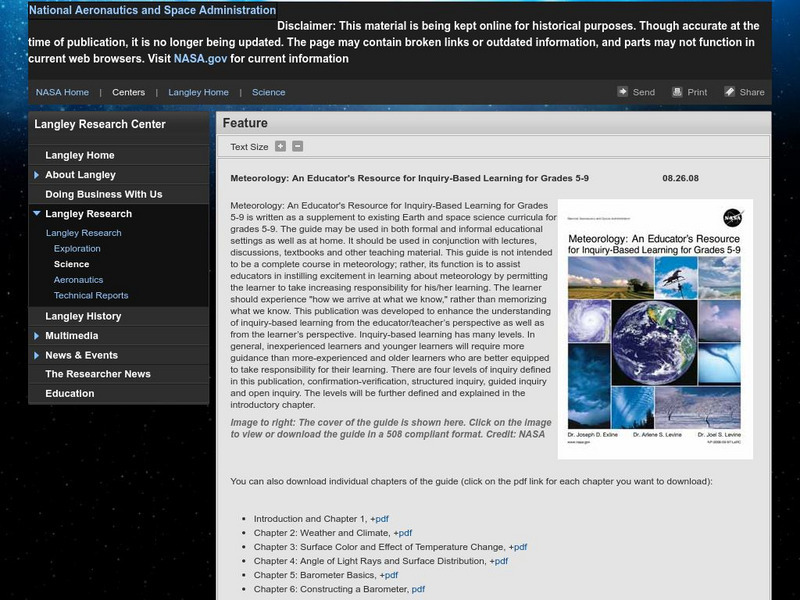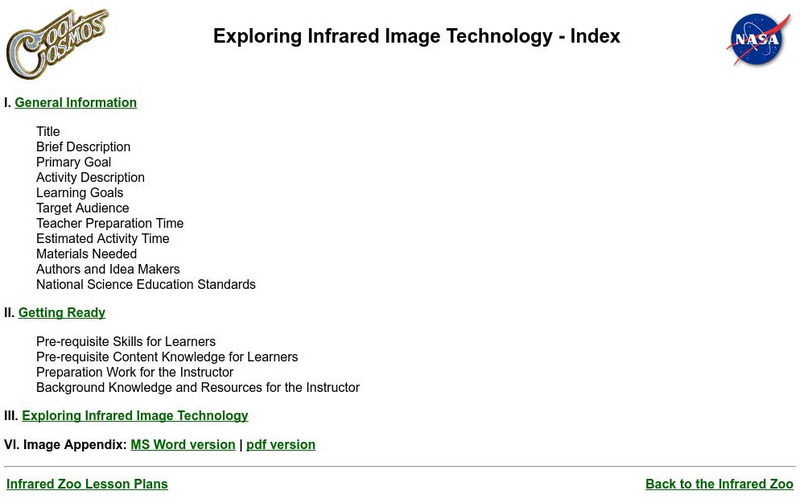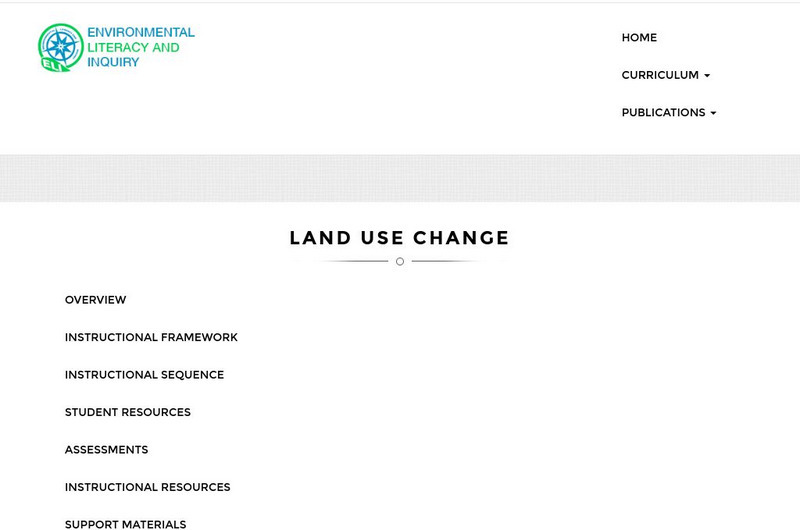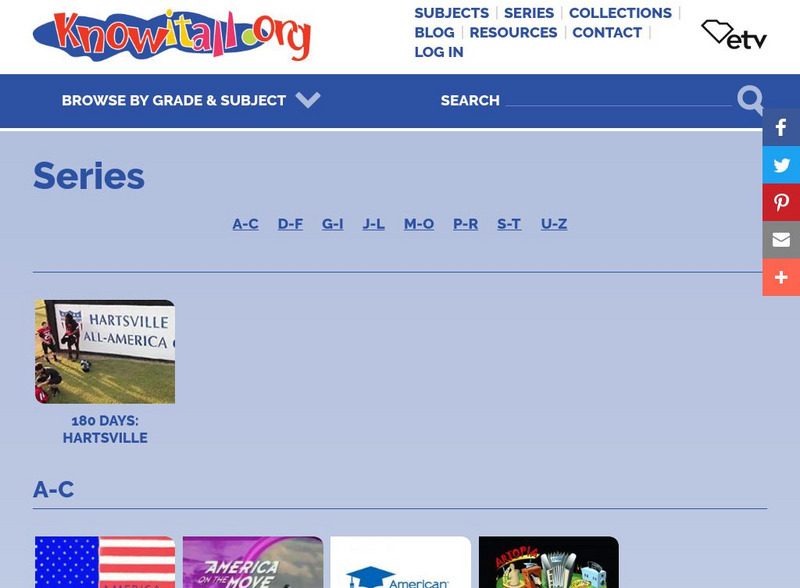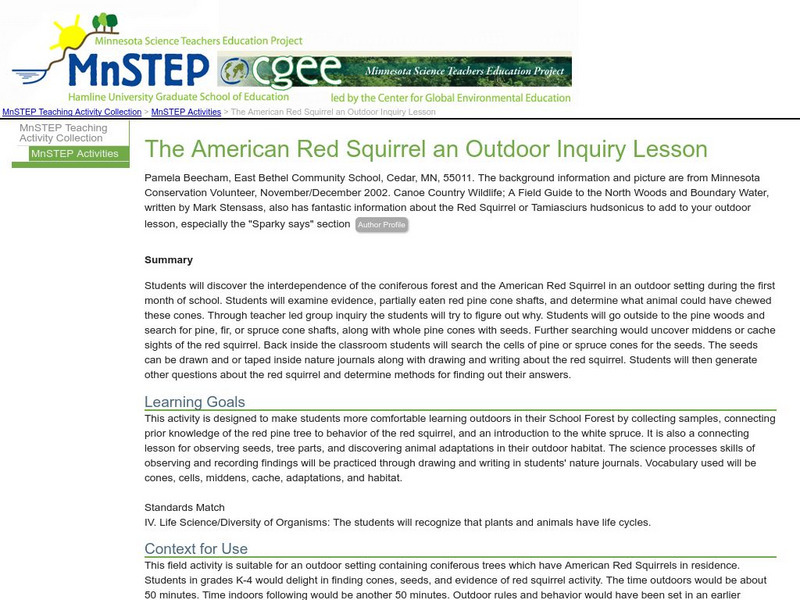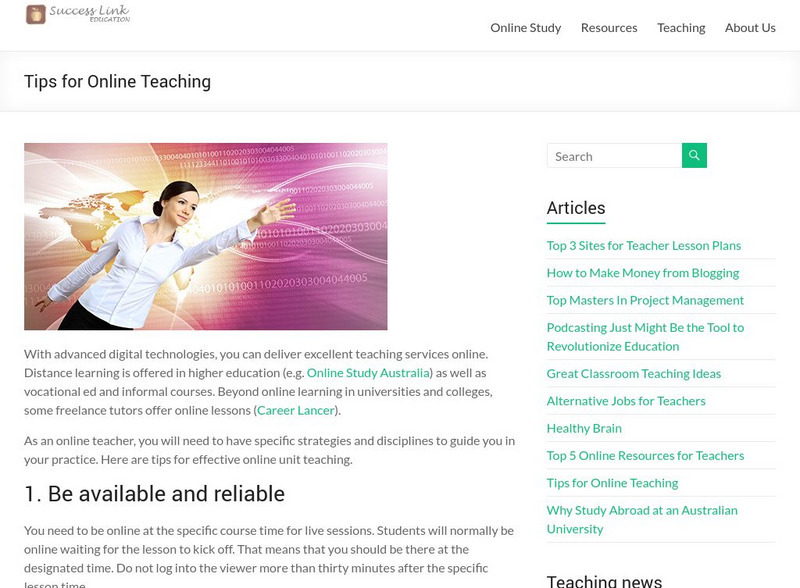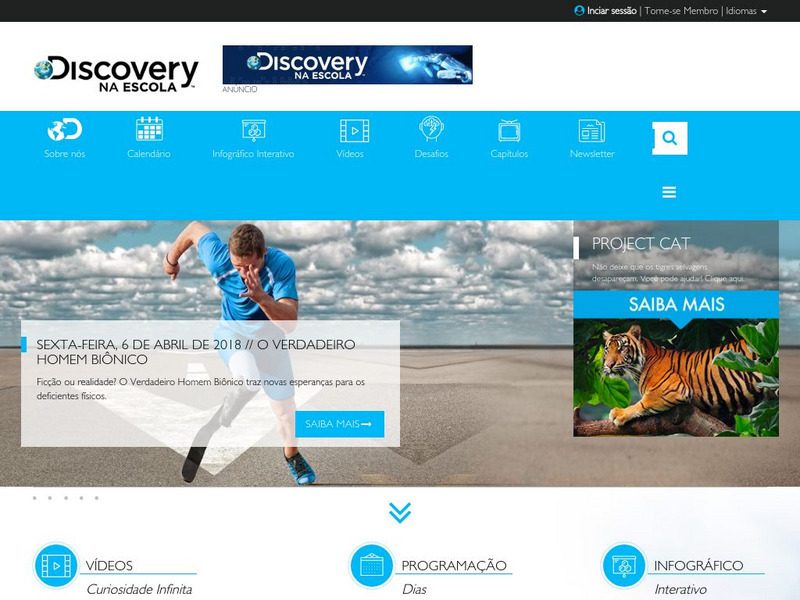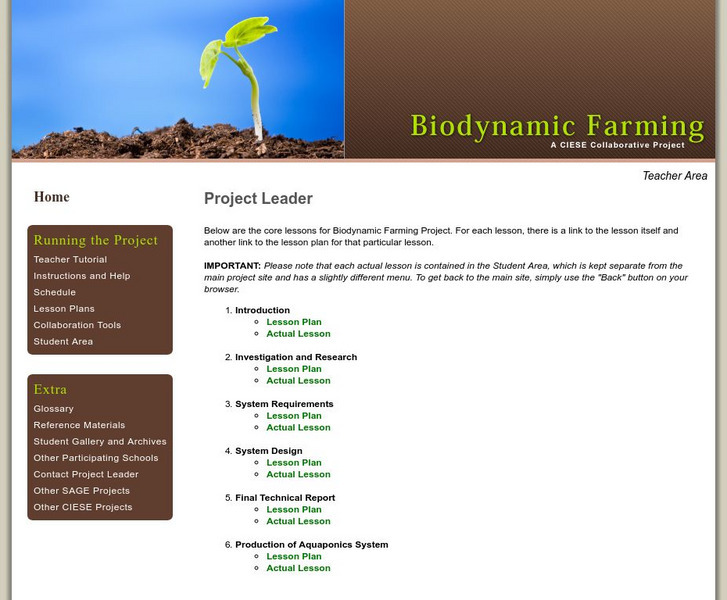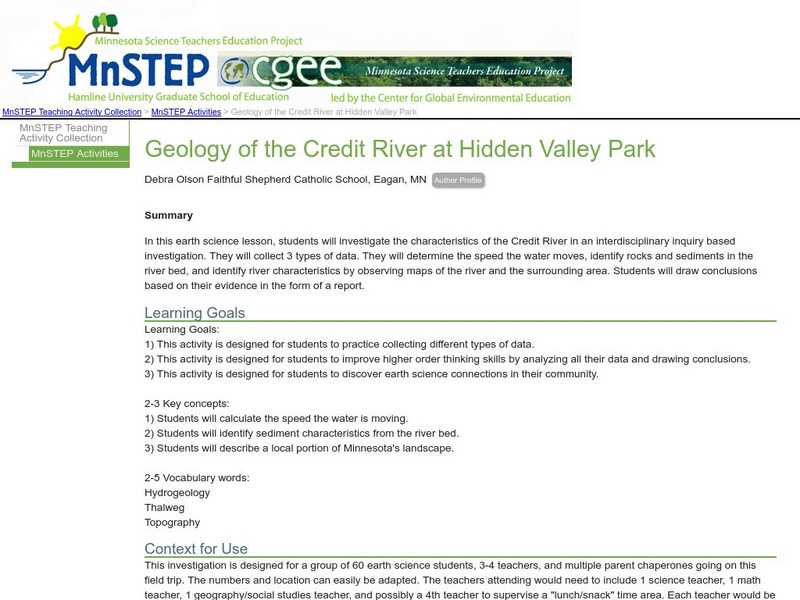Hi, what do you want to do?
University of Illinois
University of Illinois: Inquiry Page: Learning Begins With Questions
What exactly is inquiry-based learning? Use this website to learn more about this unique learning style.
California Institute of Technology
Infrared Zoo Lesson 3: The Invisible Zoo
How do biologists and zoologists use infrared technology to learn how warm and cold-blooded animals thermoregulate their internal body temperature? Have your students explore this phenomenon using this great lesson plan.
Smithsonian Institution
Smithsonian Science Education Center
Various middle school science resources from the Smithsonian Institution.
NASA
Nasa: Meteorology
Educator's resource guide to be used as a supplement to existing curriculum and to enhance the understanding of inquiry-based learning from both the educator/teacher's perspective as well as from the learner's perspective. Individual...
Other
Lehigh University: Climate Change
An inquiry-based science unit for middle school students centered on weather and climate. The lessons integrate technology and lab activities while teaching about Earth system energy balance, greenhouse gases, paleoclimatology, and how...
ReadWriteThink
Read Write Think: Digging Up Details on Worms: Using Science in an Inquiry Study
A lesson plan based on a study unit of earthworms, using the inquiry model to integrate scientific processes with literacy practices. Instruction plans, related resources, and standards are included.
Science Education Resource Center at Carleton College
Serc: Investigating Sound: A Lesson in Length and Pitch
In this classroom guided inquiry lesson, students will rotate through five stations of various sound instruments to look at how length affects pitch. The five sound stations include: straw flutes, xylophone, water phone, palm pipes, and...
California Institute of Technology
Exploring Infrared Image Technology
This NASA lesson plan explores the technology of infrared imaging. Students will use infrared images of everyday items to explore infrared technology.
Other
Lehigh University: Energy
An inquiry-based science unit for middle school learners centered on the world's energy sources. The lessons integrate technology and lab activities while teaching about energy sources, production, and consumption.
Other
Lehigh University: Land Use Change
An inquiry-based science unit for middle school students centered on how human activities affect environmental changes related to land use. The lessons integrate technology and lab activities while teaching about today's land use and how...
South Carolina Educational Television
South Carolina Etv Commission: Nasa Connect
An inquiry-based award-winning series of instructional programs which establish a connection between math, science, and technology concepts. Each episode of the series includes a 30-minute broadcast, a companion lesson guide, and an...
Other
Digital Library for Earth System Education: Teaching Box: Essentials of Weather
A suite of lessons focusing on the basic elements of climate and weather. Inquiry-based exploration of extreme weather events and the factors of weather including clouds, wind, air pressure, temperature, and the water cycle.
Science Education Resource Center at Carleton College
Serc: Mn Step: The American Red Squirrel an Outdoor Inquiry Lesson
For this activity, students are presented with red pine cones that have been partly eaten by the American Red Squirrel, a fact that is not divulged to them at this stage. After a discussion of the possibilities, the class takes a walk in...
Success Link
Success Link: Dry Ice Lab/demonstration How Cool It Is!
A lesson plan using dry ice to show the four states of matter. Included are inquiry-based questions to use as part of the demonstration.
BioEd Online
Bio Ed Online: Water
The Science of Water Teacher's Guide provides a number of inquiry-based activities for grades 3-5 (although it can be expanded for other grades). The guide contains science lessons that enable students to explore water, behavior of...
Other
Discovery Channel Na Escola (Discovery School Brazil)
This site is divided into three areas: Teachers, Parents, and Students, and complements one-hour educational programs offered by Discovery Channel Brazil. An interactive schedule allows teachers, students, and parents to find activities...
Science Education Resource Center at Carleton College
Serc: Mn Step: Relative Dating Using "The Block"
This lesson involves an innovative strategy for introducing the concept of relative dating using a block of wood that has been painted, damaged, and nailed. The task for students is to analyze the order in which these events happened and...
Center for Innovation in Engineering and Science Education, Stevens Institute of Technology
Ciese: Biodynamic Farming
During this module students learn about biodynamic farming through hands-on activities that culminate in having multiple schools collaborate to design subsystems that are combined to make a working aquaponic system. During the SAGE...
Technovation
Curiosity Machine: Challenges: Build a Cantilever
Make a cantilever that can hold 5 marbles at least 12 inches away from its base structure with this engineering challenge. The site contains the challenge, a lesson plan, tips, and a place for students to document their engineering process.
Science Education Resource Center at Carleton College
Serc: Investigating Projectile Motion: Creating a Catapult
This lesson is for 9th grade physical science students. It begins with an inquiry-based lesson using a projectile motion computer simulation. It culminates with students building a catapult; applying and connecting science knowledge from...
Alabama Learning Exchange
Alex: Using Primary Sources
This is an interdisciplinary inquiry-based instructional activity that focuses on critical thinking. Students are introduced to the true story of the first Thanksgiving with the reading of a NCSS Notable Trade Book Thanksgiving: The True...
Alabama Learning Exchange
Alex: Souper Scooper
This hands-on, inquiry based lesson is an extension of the AMSTI Science Module, Solids and Liquids. Young scholars use nonstandard units to measure beans in a soup mix. Students predict how many beans will be in a scoop. Young scholars...
Science Education Resource Center at Carleton College
Serc: Geology of the Credit River at Hidden Valley Park
In this earth science lesson, students investigate the characteristics of the Credit River in an interdisciplinary inquiry based investigation. They will determine the speed the water moves, identify rocks and sediments in the river bed,...
Alabama Learning Exchange
Alex: The Circles of Life
This is an inquiry based cooperative learning unit that can be used in biology as a graduation exam review or in botany for a nine week project. The learners will learn the life cycle of mosses, ferns, gymnosperms and angiosperms. The...








